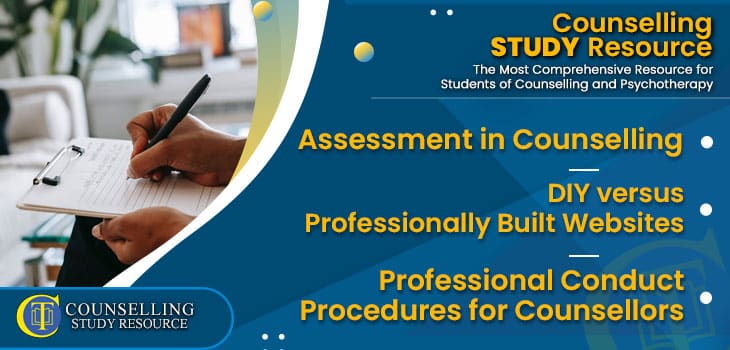See Counselling Skills Used in Real Sessions by Qualified Therapist
Real Sessions – Real Presentations – Real Skills
Gain the competence and confidence to use counselling techniques effectively!

In Episode 261 of the Counselling Tutor Podcast, your hosts Rory Lees-Oakes and Ken Kelly are back with this week’s three topics:
Assessing Clients
When it comes to your first meeting with your client, you’re going to need to get a sense of what they’re here for, and where they are. One of the ways to do this is through assessment.
The key points on assessment in this section include:

Real Sessions – Real Presentations – Real Skills
Gain the competence and confidence to use counselling techniques effectively!
In this week’s ‘Practice Today’, we have Daragh Mac Loughlin from Web Healer discussing website building.
The main points of this discussion:

On-demand access to a rich lecture library covering theory, skills, and professional development for counselling students—Mapped to the UK awarding body criteria
“The Student Library has been BRILLIANT, I can’t recommend it enough!
It has been a lifeline in helping me prepare for practice and my first clients. If you’re considering it, go-for-it, it’s absolutely worth it!”
Kelly – Graduated and now in practice.
In this week’s ‘Practice Matters’, Rory speaks again with the NCS (soon to be NCPS). This week he discusses professional conduct procedures for counsellors such as the complaints process with Rachel King and Meg Moss.
Some key points of this discussion on how to be best prepared for, or hopefully avoid the event of a complaint include:
Assessing Clients

Get on-demand Certified CPD that is implementable in your practice
